- Home
- Peter Rimmer
Treason if You Lose Page 6
Treason if You Lose Read online
Page 6
“Where did Frank go?” Tina said with a faraway look.
“To look at his rabbits.”
“Does he feel there’s something different from the others?”
“Probably. Just don’t ask him. It’ll make it worse. He tells me Maxwell wants to bite him and he can’t see why. What a beautiful summer’s evening. The reason you love England. England only gives us a few days like this a year for our memories to treasure and look forward to again. There must always be something to look forward to.”
“When are you going to America?”
“After next weekend. We have seats on the plane on Wednesday.”
“I’ll miss you, Harry.”
“I’ll miss you too, Tina. We should both try and remember that more often.”
“What’s going to become of us?”
“Only God knows.”
“Is there a God?”
“Only God knows, Tina. Only God knows, not us. People prefer to believe. Stretching the mind too far can make it break.”
“There is so much more of you here, yet you still hanker for Africa?”
“Africa has its own strange pull that can be stronger than blood. I think it’s the animals. There are so many more of them. Walk the bush and look down into the Zambezi Valley and everywhere you look you see herds grazing the long grass, browsing the leaves on the trees. The bush is so full of life and not just humans trying to get their own way. Herds of animals grazing look so peaceful. As if that was what life was about, not building a mansion or building an aeroplane to get away. Nature at its best. Life at its best. In Africa I feel so much part of it, so much more alive. In London I’m just another rabbit in the warren, deep underground so to speak, not knowing what is really going on. Here I’m submerged. There I’m floating above it, a spectator to peace and happiness, light of heart.”
“Don’t the animals kill each other?”
“Only to eat. The lion only kills what the pride can eat. Then they sit in the sun and digest their food, animals grazing around them no longer in fear of their lives knowing the lion has fed. Only man accumulates more than he can spend. Surrounds himself at great expense with useless manifestations of his apparent success. Man by his nature has to show off. Has to be appreciated. Envied. Better than the rest. The lion just wants a good meal when he’s hungry and then he’s content. Africa is free. Here we are prisoners of ourselves. Of all the rules and regulations that keep us away from each other’s throats. From doing what Europe is about to do as the same rules don’t bind nations to behave themselves the way laws frighten us with the threat of jail. Oh, no. Africa is real freedom. The African bush. One among the animals. Ask Tinus. He knows what I’m saying. Why I think he won’t take one of those careers offered him in London. He’s an African who just happens to have a white skin that the bush doesn’t see. Only humans see that kind of colour to make themselves seem bigger and better than the rest of them.”
“How long will you be in Africa?”
“That trip will take longer than America. Why I want you and the children to come too.”
“They’re in school.”
“Sometimes schools teach them the wrong way to live. So they miss a term, take the books with them and work harder when they get back to catch up.”
“When you talk like this I don’t understand you one bit. What’s wrong with Hastings Court?”
“It’s not Africa. What I’ve been trying to tell you.”
“So the threat of war is an excuse.”
“Part of it, I suppose.”
“Let’s just wait and see. Maxwell’s seen something. Just look at him run.”
6
In the end they caught the boat, Horatio Wakefield not prepared to take his chances and travel through Germany to Moscow on the train. They sailed from the Pool of London on what William called a rust bucket up the North Sea, round the Baltic Sea and into the Gulf of Finland reaching Leningrad in the USSR the same day Janusz and Ingrid arrived at Hastings Court for their weekend. The boat trip had amused Horatio after Gordon Stark asked the captain if he could photograph the cargo.
“Lucky to get on board. What’s in them crates is the owner’s business. We bring back timber from Finland and I mind my own business.”
“The markings on the crates suggest military equipment.”
“I’m not going to look inside and neither are you.”
The rest of the trip had been pleasant, Horatio remarking to Gordon Stark, who had raised the ire of the captain, “My enemy’s enemy is my friend. Whatever we think of communism, pragmatism comes first.”
Then they landed at the Port of Leningrad and life had never appeared so different. Everyone looked exactly the same. Dressed precisely the same, one big mass of humanity milling around at the railway station waiting patiently, mostly without a word. Horatio had never before seen people drilled into submission, only the start of the process in Berlin after Adolf Hitler proclaimed himself Führer of Germany. It was difficult for the three of them to see if the people were happy, as the faces were inscrutable under the cloth caps that made everyone equal, every one of the caps the same dull grey.
Without any Russian and no one speaking English, they used the one word ‘Moscow’ pronounced like a cow at the end and hoped the packed train they climbed into was the one they wanted. The rail passes had been given to them by the Russian Embassy in London, the words and alphabet unintelligible to any of them. Trying to find a seat proved impossible. They were going to stand in the corridor packed with the rest of them, not even with a battered tin box of sandwiches, Russian trains only travelling one class in a classless society that had crushed all privilege.
“They are all so grey,” said Gordon Stark, hugging the bag that contained his camera. “There is no colour. Even the landscape has less colour than England. Do you think they have to pay for their train tickets?”
“If the state considers they have a reason to travel, like us they are given a free pass,” said William Smythe. “Everything is given according to their needs. An apartment. Heating. Schooling. Mostly everything that we have to earn in a competitive society and pay for out of our own pockets. Everything here is owned by the state. Everyone has a job to do. Everyone is told what to do by someone else and God help you if you think for yourself or step out of line.”
“Everything you need free sounds good,” said Stark looking around at the faces to see if anyone was listening, whether anyone understood the three obvious foreigners in their midst. “Do you notice no one takes the blindest bit of notice? How did we end up on a ship running guns?”
“What else would they want in Russia?” asked Horatio, nervously looking around, his memories of Berlin five years earlier alive in his mind and making butterflies in his stomach.
“Does it remind you two of Germany?” asked Gordon.
“Not really,” said William. “So far they don’t look frightened. More like a herd of cows content to chew the cud and let someone else worry about the state of the world.”
“I wish we’d brought some food. Why didn’t the captain warn us?”
“He didn’t like us, Gordon. After you wanted to take pictures of his machine gun crates.”
“How did you know it was machine guns?”
“The name Vickers on the crates. Vickers make machine guns.”
“They make a lot of other things.”
“Not long and slim. The Red Army must be getting ready for Hitler like the rest of us. So this is the utopian state where the lust for materialism doesn’t officially exist.”
“At least in Russia you don’t have to worry about where your next meal comes from.”
“If you behave yourself.”
“In a British factory, if you misbehave yourself you get fired.”
“The unions would have something to say.”
“There are more ways than one of kicking an unwanted element out on the street.”
“So this is better?”
“It would
be, if my few kopecks could buy me lunch. How long does it take to get to Moscow?”
“I’m not even sure we’re even on the right train. Can either of you read the station signs?”
“The man nodded and smiled when we got on the train at Leningrad. I think he was the conductor, anyway he wore a uniform and was behaving importantly.”
“Smiling at sending three Englishmen to hell, maybe. Do the Russians even like us?”
“We were all on the same side against Germany in the last war until the Russian Revolution in ’17. Then they had more of their own problems to sort out and stopped the war against Germany. I never found out what really happened to the Eastern Front. I think they just shot their officers and buggered off. Maybe we should all have done the same.”
“Was that why the Americans came in on our side in ’17?”
“Why are photographers so ignorant?”
“I was only asking, William. I’m not the famous foreign correspondent who gives talks on the BBC.”
“Where did you get the kopecks?”
“Lloyds Bank. Some Russian émigré emptied a suitcase of paper money on the manager’s desk. The manager gave him ten quid.”
“How much did you pay?”
“Two quid for a walletful.”
“How much are they worth?”
“No idea until I try and spend them.”
“Lucky he didn’t get shot,” said William.
“Or had his head cut off. The French cut off their heads.”
“So much for capitalism. Two quid for toilet paper. Let me have a look, Stark? You’d better burn these. Do you know who that man is on the note?”
“The bank manager didn’t know. I asked him. It was only a couple of quid.”
“Bugger’s a thief. That’s Tsar Nicholas, poor sod. They shot him and his entire family.”
“The New Republic, or whatever Robespierre called his thugs, cut off the heads of the entire French aristocracy. Mind you, they were a bunch of fops. When you go to the piss house, flush those notes down the toilet, Gordon. You don’t want to end up like Horatio in Germany. Never get you out of a Russian gulag.”
“What’s a gulag?”
“A camp in the frozen north they send the people they don’t like.”
“Careful, William. One of those chaps looked up at the word gulag. There was a brief flash of fear in his eyes. I’ll go look for the toilet.”
Eleven hours later, when the train crawled into Moscow station with William declaring he could eat a horse, the same man that had looked at Gordon Stark with fear, looked at him again and smiled.
“Have a pleasant stay in Moscow, gentlemen,” he said in perfect, barely accented English before getting off the train and disappearing into the teeming crowd.
While the three of them were contemplating how easy it was to put their lives in jeopardy and hoping nothing came of their indiscretion, Tinus Oosthuizen was walking the heath at Mickleham alone with the dogs trying to make up his mind. There were more problems in his life than trying to keep his eyes off the fiancée of Janusz Kowalski. Unknown to him until he spoke to William Smythe later, like William, Ingrid had been giving him the full treatment back at the house right in front of poor Janusz. Even Uncle Harry had raised his eyebrows, somewhat embarrassed for his young guest from Poland. Later that day they were all due to drive to Redhill Aerodrome and fly aeroplanes with John Woodall.
The first of five interviews had been the most interesting and had brought him the offer of a job. Tinus would have liked to ask Aaron Rosenzweig, the eldest boy of Sir Jacob Rosenzweig and brother of Rebecca who was married to Ralph Madgwick, manager of Elephant Walk, and ostracised by her family for marrying out of the Jewish faith, whether the job offer had more to do with Uncle Harry, who had arranged the appointment, rather than his own credentials and degree. Strangely, the name of Rebecca had never come up. Or was it so strange, Tinus thought, as he watched Maxwell race away with the old, fat Spaniels trying their best to waddle on behind, one of them barking in overweight frustration.
A job at the London office of Rosenzweigs, a prestigious merchant bank, would have likely put Tinus on the path to riches. The other four interviews over two days, spending two nights at the Williams Hotel in Hackney to preserve what was left of his funds, had been for Tinus a waste of time, job opportunities picked up from the London newspapers. To work for the one company he had always had at the back of his mind, Anglo-American, required a trip to Johannesburg.
It all came down to spending his life making money on paper, matching borrowers and lenders, later floating public companies on the London stock exchange, if he was lucky, always working for someone else and daily commuting to London on the train if he couldn’t afford to live in London itself.
Trying hard to concentrate and keep the picture of Ingrid out of his mind, Tinus walked and walked, wondering why making up his mind was suddenly so difficult. A good job was a good job. There were lots of girls in London. Genevieve visited London. André Cloete, his old friend, was stationed close to London. Everything looked simple were it not for the pictures of Africa staring at him in his mind, beckoning, telling him toiling in a city was not the way to spend the rest of his life.
“No bloody way,” he said turning round on the spot, his pace quickening as he strode back to Hastings Court.
Halfway down the hill he remembered the dogs. Looking back up the long slope of the heath he saw the Spaniels coming down, trying to catch up. Maxwell stopped, asking by his stance why they were being so slow.
“You dogs eat too much,” he said to the Spaniels.
Putting two fingers in his mouth, Tinus let out the whistle that he had learnt to call the pack of Rhodesian Ridgebacks on Elephant Walk. Like a runner out of the starting blocks, Maxwell took off down the hill, both Tinus and the dog now sure they were going in the right direction.
“You’re homesick, you fool. Go home. You’ve done your degree. Go home to Elephant Walk.”
Only when he found Ingrid waiting to give him the eye back at the big house did Tinus remember there were no young girls near Elephant Walk. Probably only a couple of dozen in the whole of Rhodesia, and all with their noses stuck in the air. Proof that any shortage in demand could always command its own price, a price far higher than it was really worth.
“The first law of economics, Tinus,” he heard Mr Bowden his tutor say in his head. “Probably the first law of life. Always have what the other fellow wants and sell out dearly. The bigger the competition, the bigger the profit.”
The way Count Janusz Kowalski treated the wandering eye of his girl told Tinus one thing clearly: in Poland, there was a surplus of pretty young girls, explaining to some extent why Ingrid was trying so hard, throwing her net as wide as possible, not wishing to end up, as Tinus’s mother so often put it, ‘on the shelf’. Something highly unlikely to happen to Paula and Doris on Elephant Walk, even now Paula was nearly twenty-three years old and in their mother’s words, ‘about to miss the boat’. Young men looking for an adventure in a new country outnumbered young girls eight to one, even if most of the men were hidden away in the bush.
Maxwell, now far ahead of the pack of Spaniels and sniffing at the large picnic basket filled by Mrs Craddock for their lunch and waiting to be packed into the car to take the men to Redhill Aerodrome, had been the first to arrive.
“We’re going when you’re ready, Tinus.”
“Do I have to change?”
“What for? I’ve put what flying gear we need in the Austin. Just the three of us. John Woodall knows we’re coming. There’s a young lad from Australia he wants you to meet.”
When they got into the car, Uncle Harry explaining to them two of the big cars would fit into the concrete air-raid shelter he was planning to build for Hastings Court, Ingrid stood on the steps looking miffed. Janusz waved at her, saying something in Polish. The girl looked bewildered.
“Will she be all right on her own?” asked his Uncle Harry.
“Told her to take the dogs for a walk and not get lost. That big dog wants another walk, Tinus.”
“Must be difficult in company where you don’t speak the language. When are you two getting married?”
“She wants to stay in England and learn English. I try and help now I’m here. The trouble is, not many people speak Polish in England so no one can translate. I’ve found a Russian émigré who speaks Polish, French and English. The Russian aristocracy were good at their languages. Something to do, I suppose, when you don’t have a job. Ingrid will find it much easier to learn when we get back to London. Anyway, I have to go home. We Kowalskis like to earn our living in spite of the family estate. When I gave the Russian a pound note he kissed me. Where he was born in Russia there were seventy servants on the family estate tending the house and the gardens.”
“Don’t you worry about Poland?” asked Tinus.
“All the time. Don’t you worry about your farm in Rhodesia? That’s the trouble with a big estate. People can see what you have. You can’t hide it. Wouldn't that be part of your job as a merchant banker? Hiding jewellery so they can take it with them when they run?”
“Where do they run to?”
“America, if they have enough jewellery. Are we going to fly one of your brand new fighters, Colonel Brigandshaw?”
“Not really. More like the plane you were flying when you first met William Smythe in Warsaw. A biplane. Great for aerobatics.”
“But not much good against Germans.”
“A Tiger Moth. A recreational aircraft. Lovely to fly on a summer’s day like today. Two open cockpits. John Woodall is an old friend of mine who runs the flying school. We flew together in France during the war. 33 Squadron. Three flights with six Sopwith Camels in each flight at full strength. We were usually under strength. Pilots, Janusz. Chap crashes a plane we could quickly replace the plane, but not the pilot. Planes are easier to come by than trained pilots.”
“What were they like, sir?”

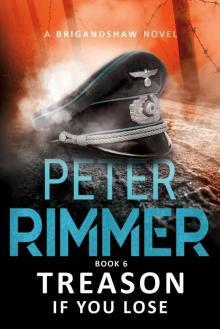 Treason if You Lose
Treason if You Lose Just the Memory of Love
Just the Memory of Love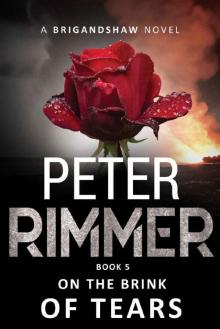 On the Brink of Tears
On the Brink of Tears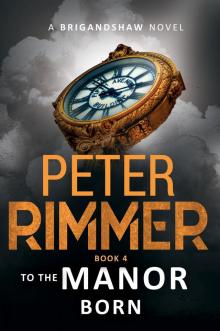 To the Manor Born
To the Manor Born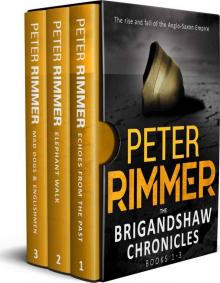 The Brigandshaw Chronicles Box Set
The Brigandshaw Chronicles Box Set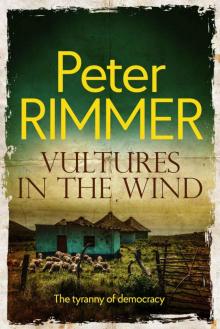 Vultures in the Wind
Vultures in the Wind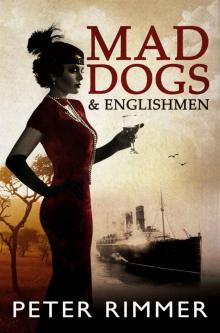 Mad Dogs and Englishmen (The Brigandshaw Chronicles Book 3)
Mad Dogs and Englishmen (The Brigandshaw Chronicles Book 3)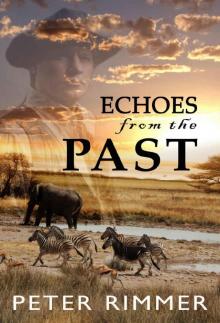 Echoes from the Past (The Brigandshaw Chronicles Book 1)
Echoes from the Past (The Brigandshaw Chronicles Book 1) Elephant Walk (The Brigandshaw Chronicles Book 2)
Elephant Walk (The Brigandshaw Chronicles Book 2)